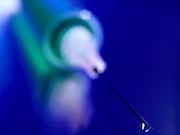Girls 12 to 17 have no increased risk of autoimmune disorders seven to 60 days after vaccination
MONDAY, July 30, 2018 (HealthDay News) — Following quadrivalent human papillomavirus (HPV4) vaccination, girls age 12 to 17 years do not have increased risk of autoimmune disorders, according to a study published recently in CMAJ, the journal of the Canadian Medical Association.
Erin Y. Liu, from Queen’s University in Kingston, Canada, and colleagues conducted a population-based retrospective cohort study using Ontario’s administrative health and vaccination databases from 2007 to 2013. The rate of a composite end point of autoimmune disorders diagnosed during days seven to 60 post-vaccination (“exposed”) was compared to that at any other time (“unexposed”). A total of 290,939 girls aged 12 to 17 years who were eligible for vaccination were included in the study cohort.
The researchers found that following HPV4 vaccination, there was no significant risk for developing an autoimmune disorder (rate ratio, 1.12, 95 percent confidence interval, 0.85 to 1.47), and the correlation was unchanged by a history of immune-mediated disorders and time since vaccination. No significant risks were seen in exploratory analyses of individual autoimmune disorders, including Bell’s palsy, optic neuritis, and Graves’ disease.
“We did not observe an increased risk of autoimmune disorders following HPV4 vaccination among teenaged girls,” the authors write. “These findings should reassure parents and health care providers.”
Copyright © 2018 HealthDay. All rights reserved.








